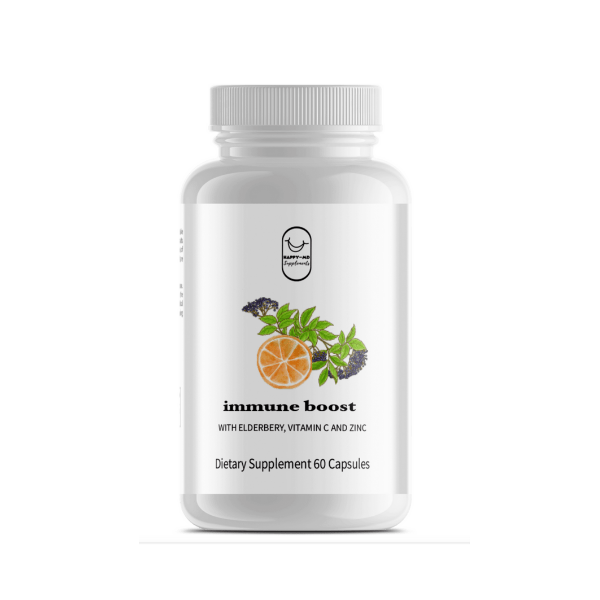Individuals who are dependent on alcohol and opioids tend to opt for solutions that offer immediate relief. In the process, they overlook nutrient-rich foods that offer sustainable benefits. In this way, alcohol and opioid dependency can lead to deficiencies in key vitamins such as zinc, vitamin C, and B vitamins. These vitamins help to detox the body and provide energy.
Repleting the body with these key nutrients can help to not only improve nutritional status in recovery and abstinence but can also help to curb cravings and enhance mental health.
Nutritional Changes in Alcohol Use
In alcohol dependency, the body becomes depleted of nutrients like zinc and vitamin B6.
- Zinc is a mineral that boosts immunity, brain health, pancreatic function, protein creation, and alcohol metabolism. Zinc is vital for those with alcohol dependency because it is used by an enzyme that cleanses the body by speeding up alcohol metabolism [1]. Unfortunately, in alcohol dependency, the damaged gut barrier poorly absorbs zinc and flushes it out of the body. In the recovery period, zinc deficiency can worsen withdrawal seizures, delay brain recovery, and impede immunity [2].
- Vitamin B6 is essential for alcohol metabolism, production of brain neurotransmitters, and mental health. In alcohol dependency, the body doesn’t get enough of this precious vitamin [3]. In the recovery period, vitamin B6 deficiency can lead to withdrawal seizures, irritability, and a worsened outlook on life [4].
Nutritional Changes in Opioid Use
Opioid use significantly affects the absorption of nutrients, such as zinc and vitamin C.
- Zinc plays an important role in mental health by balancing anxiety levels. Unfortunately, studies show that opioid use increases the way zinc is flushed out through urine, leading to zinc deficiency. Zinc deficiency can delay recovery from opioid use by worsening anxiety, withdrawal symptoms, and reliance on opioids [5].
- Vitamin C is important for immunity, brain health, and detox. Unfortunately, vitamin C is excessively excreted in those who are opioid dependent, leading to vitamin C deficiency [6].
How Supplements & Lifestyle Changes Can Kickstart Recovery
Recovery from alcohol and opioid dependency involves a total lifestyle change. Fortunately, individuals can take control of their recovery journey by feeding their bodies with the right balance of nutrients and energizing their bodies with exercise.
Supplements, in addition to healthy dietary changes and regular cardiovascular exercise, can help to jumpstart wellbeing during this journey. Supplements, such as the Happy-MD Immune Boost supplement, offer a natural way to replenish the body with key nutrients that can enhance physical and mental recovery from alcohol and opioid dependency.
In recovery from alcohol use, zinc can help to cleanse the liver from harmful toxins and curb feelings of anxiety. In the recovery period, fortifying the body with Vitamin B6 can target withdrawal symptoms and enhance brain health and mood.
In opioid use recovery, zinc may help to enhance mood, improve reliance on opioids, and ease withdrawal symptoms. Vitamin C also plays an important role in recovery from opioid use by increasing levels of mood-elevating hormones, called endorphins. In the recovery period, vitamin C supplementation may help to stabilize mood and reduce the reliance on opioids [7].
The Happy-MD Immune Boost Advantage
The Happy-MD Immune Boost supplement is uniquely designed to replenish the body with nutrients that support recovery and abstinence, without any artificial chemicals or preservatives. For total-body wellness, this supplement is also infused with Elderberry extract, vitamin C, vitamin E, vitamin B6, L-glutamine HCL, echinacea powder, garlic powder, turmeric curcuminoids, and probiotics. Just take two capsules a day to experience the Happy-MD recovery advantage. Purchase it here.
References
- Skalny AV, Skalnaya MG, Grabeklis AR, Skalnaya AA, Tinkov AA. Zinc deficiency as a mediator of toxic effects of alcohol abuse. Eur J Nutr. 2018;57(7):2313-2322. doi:10.1007/s00394-017-1584-y
- Menzano E, Carlen PL. Zinc deficiency and corticosteroids in the pathogenesis of alcoholic brain dysfunction–a review. Alcohol Clin Exp Res. 1994;18(4):895-901. doi:10.1111/j.1530-0277.1994.tb00057.x
- Glória L, Cravo M, Camilo ME, et al. Nutritional deficiencies in chronic alcoholics: relation to dietary intake and alcohol consumption. Am J Gastroenterol. 1997;92(3):485-489.
- Hoes MJ. The significance of the serum levels of vitamin B-1 and magnesium in delirium tremens and alcoholism. J Clin Psychiatry. 1979;40(11):476-479.
- Ciubotariu D, Ghiciuc CM, Lupușoru CE. Zinc involvement in opioid addiction and analgesia–should zinc supplementation be recommended for opioid-treated persons? Substance Abuse Treatment, Prevention, and Policy. 2015;10(29). DOI: 10.1186/s13011-015-0025-2.
- Lim DJ, Sharma Y, Thompson CH. Vitamin C and alcohol: a call to action. BMJ Nutr Prev Health. 2018;1(1):17-22. Published 2018 Dec 5. doi:10.1136/bmjnph-2018-000010
- Zelfand E. Vitamin C, Pain and Opioid Use Disorder. Integr Med (Encinitas). 2020;19(3):18-29.

